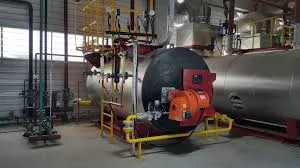
Eki . 19, 2024 06:35 Back to list
steam boiler chemicals
Understanding Steam Boiler Chemicals Importance, Types, and Applications
Steam boilers are essential components in various industries, converting water into steam for heating, energy production, and other processes. To ensure optimal performance and longevity of steam boilers, chemical treatments are employed. These chemicals play a crucial role in maintaining water quality, preventing corrosion, and ensuring efficient operation. This article delves into the importance of steam boiler chemicals, their types, and their applications.
Importance of Steam Boiler Chemicals
The primary function of steam boiler chemicals is to maintain the integrity of the boiler system. Poor water quality can lead to scaling, corrosion, and fouling, which can significantly affect the efficiency of the boiler. These issues can result in increased energy consumption, higher operational costs, and even catastrophic failures. By utilizing the appropriate chemicals, operators can mitigate these risks and enhance the reliability and efficiency of their steam systems.
Types of Steam Boiler Chemicals
1. Oxygen Scavengers Oxygen is a major contributor to corrosion in boiler systems. Oxygen scavengers, such as sodium sulfite and hydrazine, are used to eliminate dissolved oxygen from the feedwater before it enters the boiler. This is crucial for preserving the metal integrity of boiler parts, reducing the likelihood of pitting and other forms of corrosion.
2. Scale Inhibitors As water is heated, dissolved minerals can precipitate and form scale on the internal surfaces of the boiler. This scale can significantly reduce heat transfer efficiency and increase the risk of overheating. Scale inhibitors like polyphosphates and phosphonates are employed to prevent scale formation by keeping minerals in a dissolved state or by modifying their structure to minimize adherence to surfaces.
3. Alkalinity Builders Maintaining the correct pH level is essential for steam boiler systems. Alkalinity builders such as sodium hydroxide and sodium bicarbonate are added to raise the pH of the water. Proper alkalinity helps to suppress corrosion and scale formation while promoting the stability of the treatment chemicals.
4. Biocides In some cases, microorganisms like bacteria and fungi can grow in the water, leading to biofouling and degrading the quality of the steam. Biocides are chemicals used to control microbial growth, ensuring that the water remains clean and free from harmful organisms.
steam boiler chemicals

5. Corrosion Inhibitors These are specially formulated chemicals that form a protective layer on the metal surfaces of the boiler. They can be organic or inorganic compounds that provide a barrier against corrosive substances in the water. Successful application of corrosion inhibitors is essential for extending the lifespan of the boiler system.
Applications of Steam Boiler Chemicals
The application of steam boiler chemicals is critical across a range of industries, including
- Power Generation Steam boilers in power plants require stringent water treatment to ensure high efficiency and reliability. The chemicals used in these systems protect equipment and optimize performance, enhancing overall energy production.
- Manufacturing Many manufacturing processes, such as food processing, pharmaceuticals, and textiles, rely on steam for heating and sterilization. Maintaining water quality through chemical treatments is vital to meet regulatory standards and product quality.
- Refineries and Chemical Plants In these facilities, steam boilers are used for various applications, including chemical reactions and distillation processes. Proper chemical management helps avoid equipment failures that could lead to costly downtimes and safety hazards.
- HVAC Systems Steam boilers also play a significant role in heating, ventilation, and air conditioning systems, ensuring comfortable environments in large buildings and industrial complexes. The use of chemicals in these systems aids in maintaining efficiency and prolonging system life.
Conclusion
In summary, steam boiler chemicals are indispensable for the efficient and safe operation of steam boiler systems across various industries. By understanding the types and applications of these chemicals, operators can make informed decisions to maintain water quality, prevent equipment failure, and optimize energy consumption. As industries continue to evolve, the importance of proper chemical management will remain a cornerstone of effective steam boiler operation, ensuring sustainability and productivity.
-
Commercial Steam Boilers for Sale - AI Optimized Efficiency
NewsAug.02,2025
-
Efficient Biomass Fired Hot Water Boiler | AI Heating Solution
NewsAug.01,2025
-
High-Efficiency Gas Thermal Oil Boilers | HPT Models
NewsJul.31,2025
-
Oil Fired Hot Water Boilers Sale - High Efficiency & Affordable
NewsJul.31,2025
-
High-Efficiency Commercial Oil Fired Steam Boiler for Industry
NewsJul.30,2025
-
High-Efficiency Biomass Fired Thermal Oil Boiler Solutions
NewsJul.30,2025
Related PRODUCTS






















